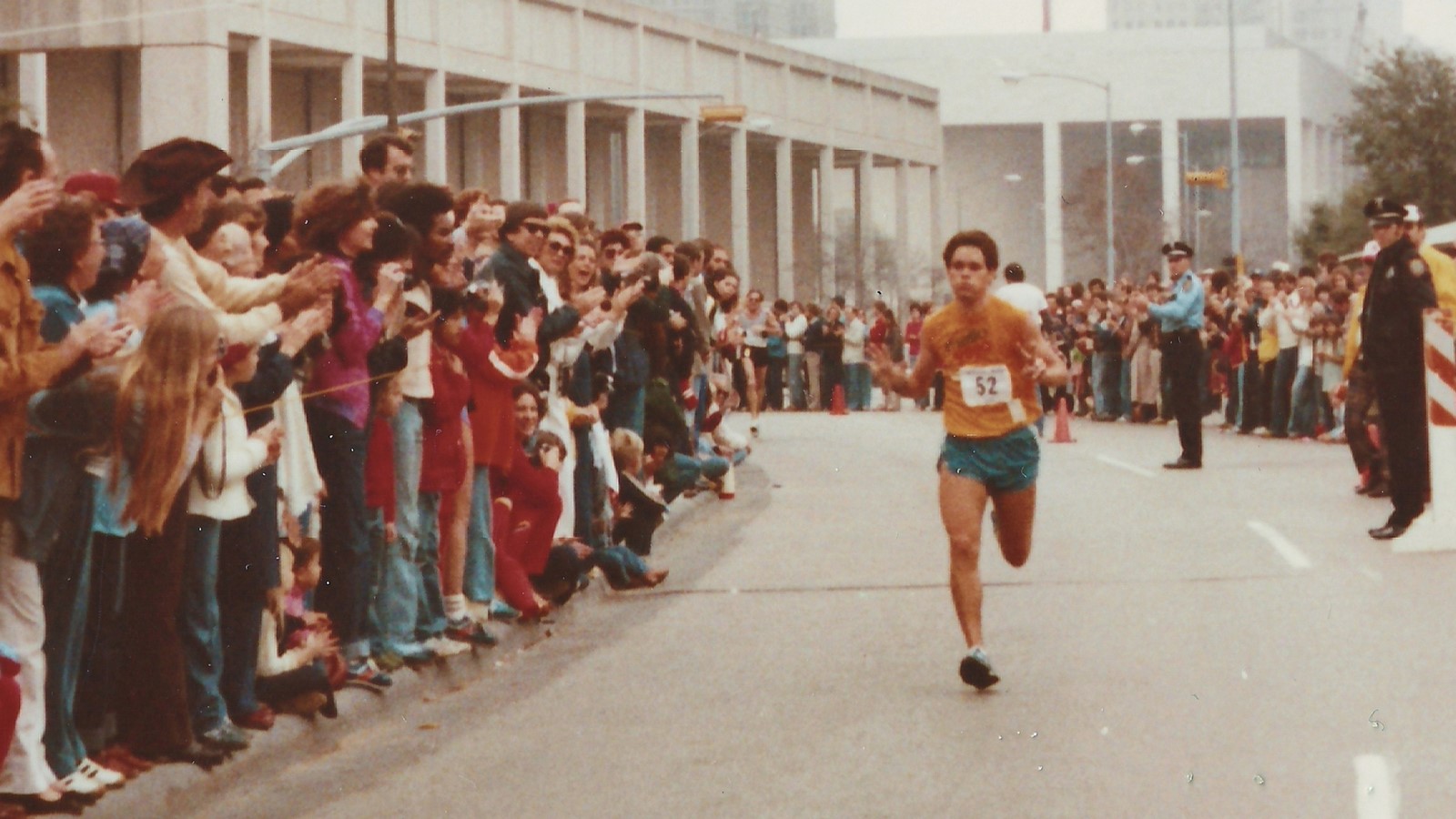
“There he is, running, just running, because he must run,” Alexandra Helgerson says in the opening moments of her new documentary “Age Group Winner,” a film detailing her 10-year investigation into the motivations of her father, Jay Helgerson, who in 1980 became the first person to run a marathon a week for a year, all of them sub 3-hours.
Those opening words, so simple and understandable on the surface, belie the complex motivations that Helgerson investigates in her directorial debut, unknown motivations that most runners can relate to. We rarely analyze our reasoning, only knowing that we too, like Jay Helgerson, must get out and run, as so many do in Boulder every day.
(I recall being in the old Daily Camera building on Pearl Street when then sport editor Dan Creedon got a call: “Hey, Rock,” he called out from across the sports department. “Lady wants to know what’s the race going on along the Creek Path today.” There was no race; just a typical sunny weekend afternoon in Boulder).
Running back when Helgerson started marathoning was much different than today’s super shoe-wearing, Strava-recording scene. “Age Group Winner” shows well the grit and garb of that first generation born of the 1970s Running Boom, with tight shorts and singlets that rubbed and chafed.
Why did he decide to run a marathon every week? Helgerson really did not know, although he provides a clue in one of the many news articles written about him as the streak grew into The Streak: he wanted to create a niche for himself. Helgerson, whose best time was 2:35, certainly did that, and in a way that was not forced. He’s a natural, in both running form and a runners’ personality, and his marathons in races from Boston to Houston to Iowa to Atherton, Calif., show that.
Run a marathon a week for 52 consecutive weeks? Of course, why not?
“Age Group Winner” will be screened Saturday evening at the Dairy Arts Center as part of this weekend’s Boulder Environmental Nature Outdoors Film Festival 2025 (thedairy.org). It’s a compelling story of the early days of the Running Boom, when marathon running was still anathema for much of the population.
Jay Helgerson gets national attention as the press covers his races.
Helgerson ran marathons and ran them well, teaching his daughter to run, but, as Alexandra says in the documentary, she loved books more, eventually becoming an actor and now director.
“Age Group Winner” starts out as a running film, with footage of Helgerson running along a tree-laden path.
Then, as Alexandra says early on, “it all changed in 2023” when she becomes ill and the elder Helgerson turns the camera on her.
The documentary then becomes a compelling story of affirming life in the midst of hardships.
“It is first and foremost about the life of a runner; why run, run, run? What is making him run like this?” producer Ryan Graves said in a Tuesday phone interview, explaining that “Age Group Winner” morphs into what is called “cinema vérité,” when Alexandra finds herself becoming part of the story as her father rallies to support her.
It is from their relationship and the perseverance of father and daughter that the deeper message of “Age Group Winner” appears. That message is presaged in an epigraph from author James Baldwin that Alexandra places at the beginning of the documentary, and which, perhaps, answers the question about her father she set out to answer: “…and the great difficulty is to say Yes to life.”
Alexandra Helgerson also gives us an answer to her father’s motivation with another epigraph, from Classical Greece, this one from Plato’s “Republic:” “A respectable man is characterized by health, beauty and the ability to run.”
In an email, Helgerson (patreon.com/lexhelgerson), added that the quote from Plato is more of insight than an answer: “What is a respectable man nowadays? The film is of course about running, but at its core I think it’s a love letter. I hope people will feel that. “
Follow Sandrock on Instagram: @MikeSandrock


 PREVIOUS ARTICLE
PREVIOUS ARTICLE
